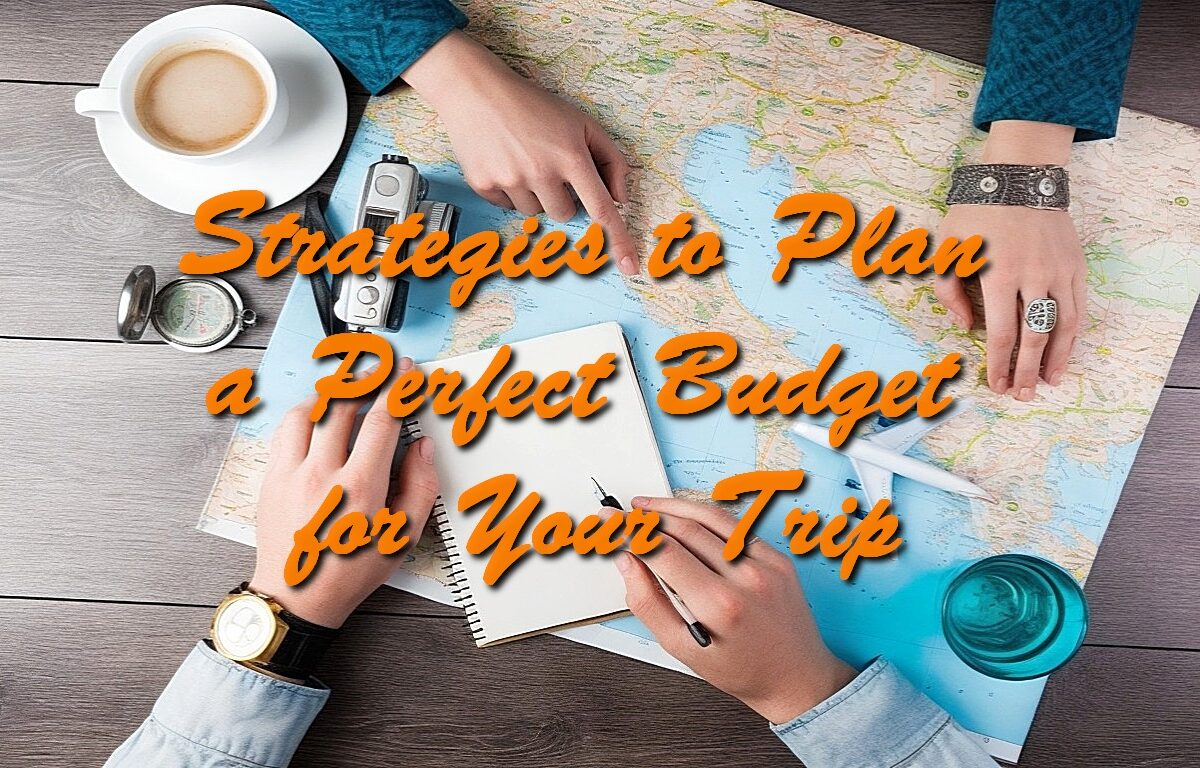Planning a trip can be an exciting and rewarding experience, but it’s essential to have a well-thought-out budget to ensure you can make the most of your adventure without breaking the bank. Whether you’re a budget traveler or looking for a luxurious getaway, these strategies will help you plan the perfect budget for your trip.
Assess Your Financial Situation

Before you embark on your trip-planning journey, it’s crucial to assess your financial situation. Take a close look at your income, savings, and outstanding debts with tools like this one: https://www.thepaystubs.com/. Understanding your financial standing will help you determine how much you can allocate to your travel budget. Consider creating a dedicated travel fund if you haven’t already, where you can set aside money specifically for your trips.
Set a Clear Budget Goal
Once you have a grasp of your financial situation, it’s time to set a clear budget goal for your trip. Decide how much you’re willing to spend in total and break it down into categories such as accommodation, transportation, food, activities, and souvenirs. Having a detailed budget will help you allocate funds efficiently and avoid overspending in any one category.
Research Destination Costs
The cost of living and travel expenses can vary significantly from one destination to another. Do thorough research on your chosen destination to get a realistic idea of how much you’ll need. Consider factors like currency exchange rates, daily expenses, and any special attractions or experiences you want to include in your trip. Websites, travel guides, and forums can provide valuable insights into destination costs.
Prioritize Your Expenses
Not all expenses are created equal, and it’s essential to prioritize your spending based on your interests and preferences. Allocate more of your budget to the aspects of the trip that matter most to you. For example, if you’re a foodie, you might want to spend more on dining experiences, while a nature enthusiast might prioritize outdoor activities and accommodations close to natural attractions.
Create a Contingency Fund
No matter how meticulously you plan your budget, unexpected expenses can arise during your trip. To account for these surprises, create a contingency fund that’s separate from your main budget. A general rule of thumb is to set aside 10-15% of your total budget as a buffer. Having this safety net will help you handle unexpected situations without straining your finances.
Use Budgeting Tools and Apps

There are numerous budgeting tools and apps available that can simplify the budgeting process. Consider using apps like Mint, YNAB (You Need a Budget), or TravelSpend to track your expenses in real time. These apps can help you stay on top of your spending and make necessary adjustments to your budget as needed.
Book in Advance
One of the most effective ways to stick to your budget is to book major expenses in advance. Flights and accommodations tend to be cheaper when booked well ahead of your trip. Additionally, booking activities and tours in advance often comes with discounts. Take advantage of early booking opportunities to save money and secure your plans.
Monitor Your Spending
Throughout your trip, keep a close eye on your spending. Record your expenses daily to ensure you’re staying within your budgeted limits for each category. If you notice that you’re overspending in one area, look for ways to cut costs in another. Staying vigilant about your finances during the trip will help you make adjustments as needed to avoid going over budget.
Be Flexible and Adapt
While it’s important to stick to your budget, it’s also essential to be flexible and adapt to changing circumstances. Unexpected opportunities or challenges may arise during your trip, and it’s okay to adjust your budget to make the most of them. Just be mindful of the overall impact on your finances and make informed decisions.
Review and Reflect
After your trip, take the time to review and reflect on your budgeting strategies. Did you stay within your budget? Were there any unexpected expenses you didn’t anticipate? Use this experience to fine-tune your budgeting skills for future trips, ensuring that each adventure becomes more cost-effective and enjoyable than the last.
In conclusion, planning a perfect budget for your trip requires careful consideration of your financial situation, destination costs, and personal preferences. By setting clear goals, using budgeting tools, and staying adaptable, you can create a budget that allows you to have a fantastic travel experience without the stress of overspending. Happy travels!

